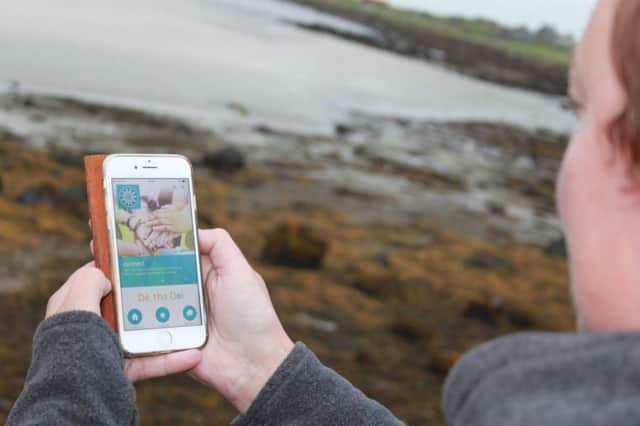Ros Halley: There’s an app for that – fight against loneliness goes digital in the isles


This innovative project is underway in two pilot regions, the Western Isles and Argyll & Bute, and aims to strengthen community connections to make a positive difference to the mental wellbeing of people living in rural areas.
The project works with the National Rural Mental Health Forum and is funded through the Scottish Government’s Aspiring Communities Fund with support from the European Social Fund.
Advertisement
Hide AdAdvertisement
Hide AdGlobally, there are many studies that evidence the role of the individual, family or health institutions on mental health, but so far only a few projects have emerged to test the interplay of whole communities and the non-health sectors on our mental wellbeing.
Our approach recognises that friends, family, neighbours, workplaces, schools, clubs and societies are at the heart of our wellbeing. Without a positive community we do not develop a positive sense of connection, we do not feel safe, we lack confidence and we have a lower sense of worth. We believe that building stronger communities is key to improving health and wellbeing for every citizen.
In Scotland, we have some very big challenges ahead – Scotland’s population is ageing and ageing somewhat more rapidly than other parts of the UK and our sparsely populated areas will be most affected. We know that social isolation and loneliness can affect anyone – at all ages and at all stages of life. However, we need to do much more to tackle the problem among older people. Currently 100,000 older people in Scotland feel lonely most of the time and double that number will go half a week without any visit or call from anyone.
We have a great opportunity to use digital technology as part of our approach to test out how to increase community engagement and create more caring places. By working in partnership with local partners, the project aims to build better informed, more compassionate communities.
The digital aspects of the project are already having a significant impact in the Uists and Benbecula. In this part of the Western Isles, the focus is on developing links between existing organisations and improving communications. The project team has been working with a Glasgow-based app developer to build a digital platform that will help people to connect and engage more regularly in community activities.
The platform, named Dè tha Dol (What’s Happening in Gaelic) is intended to serve as a one-stop shop for anyone looking for clubs, activities, services, businesses, attractions, mental health support and much more throughout the islands.
The project is now urging local organisations, services, clubs and businesses to add their information and news to the platform to create a unique community resource for all to benefit.
Project development officer Gemma Jones said: “The goal of the website and app is to offer people the chance to find out what’s happening and where – simply knowing what’s on can be a challenge and Dè tha Dol aims to remedy that. We have been working with more than 20 local partners to bring Dè tha Dol to life and we look forward to seeing the local community enjoy the benefits.”
Advertisement
Hide AdAdvertisement
Hide AdWe recognise that a one-size-fits-all approach does not work and so, in the next phase, we hope to explore with residents on the Isle of Mull whether a digital platform would be right for them and ensure that our response is tailored to their specific needs, abilities and desires.
Technology alone will not solve loneliness or isolation or resolve all our challenges around poor mental health, but when combined with creating and enabling meaningful social interaction, it can add great value to community wellbeing.
Our team has also developed actions beyond technology, including establishing Blether Benches in three locations to encourage people to sit and talk.
On the Isle of Mull, the team linked with the local community transport initiative and a local theatre company to create opportunities for people socially or geographically isolated to come together and enjoy good entertainment in the company of local folk. In addition, there has been an effort in both pilot areas to increase knowledge about mental health and schools, businesses, clubs and organisations have benefited from new local training.
As the project progresses in both pilot areas, we need to consider the importance of ongoing resources and generating long-term outcomes. Alongside traditional support mechanisms developed with our partners in both areas, our digital response helps to put the community back as a central and sustainable resource to support health.
When used effectively and in a supporting context, we believe that a digital response can really improve the lives of the most vulnerable people in our society. We are looking forward to collating the results from both pilots and to grow new partnerships to extend our reach and impact across rural and remote Scotland well beyond 2020.
Our intention is to create future actions that recognise the importance of connection in community wellbeing and together with partners in Scotland our ambition is to create communities that really do care.
Ros Halley, Highlands & Islands connections manager, Support in Mind Scotland.